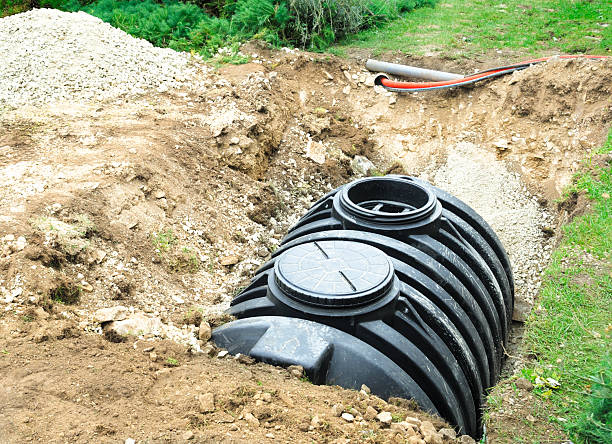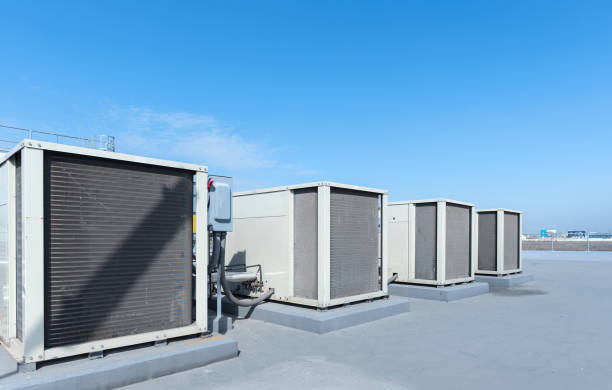Does Home Insurance Cover Septic Tanks?
Does home insurance cover septic tanks? Owning a home comes with a multitude of responsibilities, one of which includes maintaining the various systems that keep it running smoothly.
One crucial component that often goes unnoticed until a problem arises is the septic tank.
Septic tanks play a vital role in managing wastewater for homes that are not connected to a public sewer system.
However, like any other critical system in your home, septic tanks can encounter issues, and repairs or replacements can be costly.
This raises the question: Does home insurance cover septic tanks?
It’s a valid concern for homeowners seeking financial protection in the event of unexpected septic tank problems.
In this article, we delve into the topic of whether home insurance policies typically include coverage for septic tanks.
We explore the factors that influence coverage and the steps you can take to ensure proper coverage for this essential component of your home.
Understanding the extent of coverage for septic tanks is crucial for homeowners seeking peace of mind, financial security, and the ability to address potential septic system issues effectively.
So let’s dive in and explore the intricate relationship between home insurance and septic tanks to help you make informed decisions about protecting your property and your wallet.
Also Read:
Does Home Insurance Cover Electrical Problems?
Does Getting a New Roof Lower Home Insurance?
Does Home Insurance Cover Septic Tanks?
Home insurance policies are designed to protect homeowners from various risks and perils, providing financial coverage for property damage or loss.
However, when it comes to septic tanks, coverage may vary depending on the insurance provider and policy specifics.
In general, standard home insurance policies do not typically include coverage for septic tanks as part of their basic provisions.
These policies primarily focus on protecting the structure of the home, personal belongings, and liability in case of accidents or injuries on the property.
Septic tanks, being an underground component of the home, often fall outside the scope of coverage.
That said, there are insurance companies that offer specific endorsements or add-ons to their policies to cover septic tanks.
These additional coverages may vary in terms of what they protect against, such as damage caused by leaks, collapses, or malfunctions of the septic system.
It is important for homeowners to carefully review their policy documents or consult with their insurance provider to determine if such endorsements are available and what they entail.
Moreover, certain circumstances can influence coverage eligibility.
For instance, if a septic tank failure results in damage to the home itself, such as flooding or water damage, the insurance policy might cover the resulting property damage, but not necessarily the repair or replacement of the septic tank itself.
It’s crucial for homeowners to understand the limitations and exclusions within their policy to assess their level of protection for septic tanks.
Some policies may explicitly exclude septic tanks or impose specific conditions for coverage, such as regular maintenance or inspections to ensure proper functioning of the system.
Overall, while standard home insurance policies typically do not provide automatic coverage for septic tanks, homeowners have the option to explore endorsements or additional coverage options to safeguard against potential septic system issues.
It is advisable to consult with insurance providers, review policy documents thoroughly, and consider the specific needs and risks associated with your septic tank to ensure adequate protection for this essential component of your home.
Factors That Determine Coverage for Septic Tanks
When it comes to determining coverage for septic tanks under a home insurance policy, several key factors come into play.
Understanding these factors is essential for homeowners seeking to ensure adequate protection for their septic systems.
Here are the primary considerations that influence coverage:
1. Policy Provisions
The first and most critical factor is the specific language and provisions within the home insurance policy itself.
Different insurance providers offer varying levels of coverage for septic tanks, and it is crucial to review the policy documents carefully.
Look for any exclusions, limitations, or endorsements related to septic tank coverage.
2. Endorsements and Add-Ons
Some insurance companies may offer endorsements or add-on options that specifically extend coverage to septic tanks.
These additional coverages may come at an extra cost but can provide essential protection against damages, leaks, or malfunctions of the septic system.
Check with your insurance provider to determine if such endorsements are available and what they entail.
3. Maintenance and Inspections
Insurance policies may impose requirements regarding the maintenance and inspection of septic tanks.
Regular maintenance and professional inspections are often necessary to ensure coverage eligibility.
Failing to meet these requirements could result in a denial of coverage or a reduction in the claim payout.
4. Age and Condition of the Septic System
The age and condition of the septic system can also impact coverage.
Older or poorly maintained systems may be considered higher risks, potentially affecting the availability or cost of coverage.
Insurance providers may require proof of the system’s age, installation, and maintenance history before extending coverage.
5. Local Regulations and Risks
Local regulations and environmental factors can influence coverage as well.
Homes located in areas prone to flooding, high water tables, or geological instability may face higher risks of septic system failures.
Insurance providers may consider these factors when determining coverage eligibility and premiums.
It’s important for homeowners to communicate openly with their insurance provider, ask relevant questions, and provide accurate information about their septic systems.
By understanding these factors and discussing them with their insurance agent, homeowners can make informed decisions about obtaining the appropriate coverage for their septic tanks.
Steps to Take for Proper Coverage of Septic Tanks
To ensure proper coverage for your septic tank under a home insurance policy, follow these steps:
- Review your policy to understand existing coverage and exclusions.
- Communicate with your insurance provider to discuss your septic tank coverage needs.
- Consider adding endorsements or additional coverage options specific to septic systems.
- Maintain and inspect your septic tank regularly, following recommended guidelines.
- Explore specialized coverage options tailored to septic tanks if available.
- Document any damages or issues thoroughly with photographs, invoices, and communication records.
By taking these steps, you can enhance your chances of obtaining adequate coverage for your septic tank and ensuring financial protection in the event of unexpected problems.
Remember to consult with insurance professionals for personalized advice.
Also Read:
How to Start an Insurance Agency from Home
Does Home Insurance Cover Window Replacement?
Conclusion
Understanding whether home insurance covers septic tanks requires careful examination of policy provisions, endorsements, and maintenance requirements.
While standard policies may not automatically include coverage for septic tanks, homeowners can explore add-ons or specialized coverage options.
Regular maintenance, inspections, and proper documentation play a crucial role in strengthening the case for coverage.
By communicating with insurance providers, reviewing policy details, and taking proactive measures, homeowners can ensure adequate protection for their septic tanks.
It is essential to consider the specific needs of your septic system and seek professional advice to make informed decisions about securing financial support for any unforeseen septic tank-related issues.







